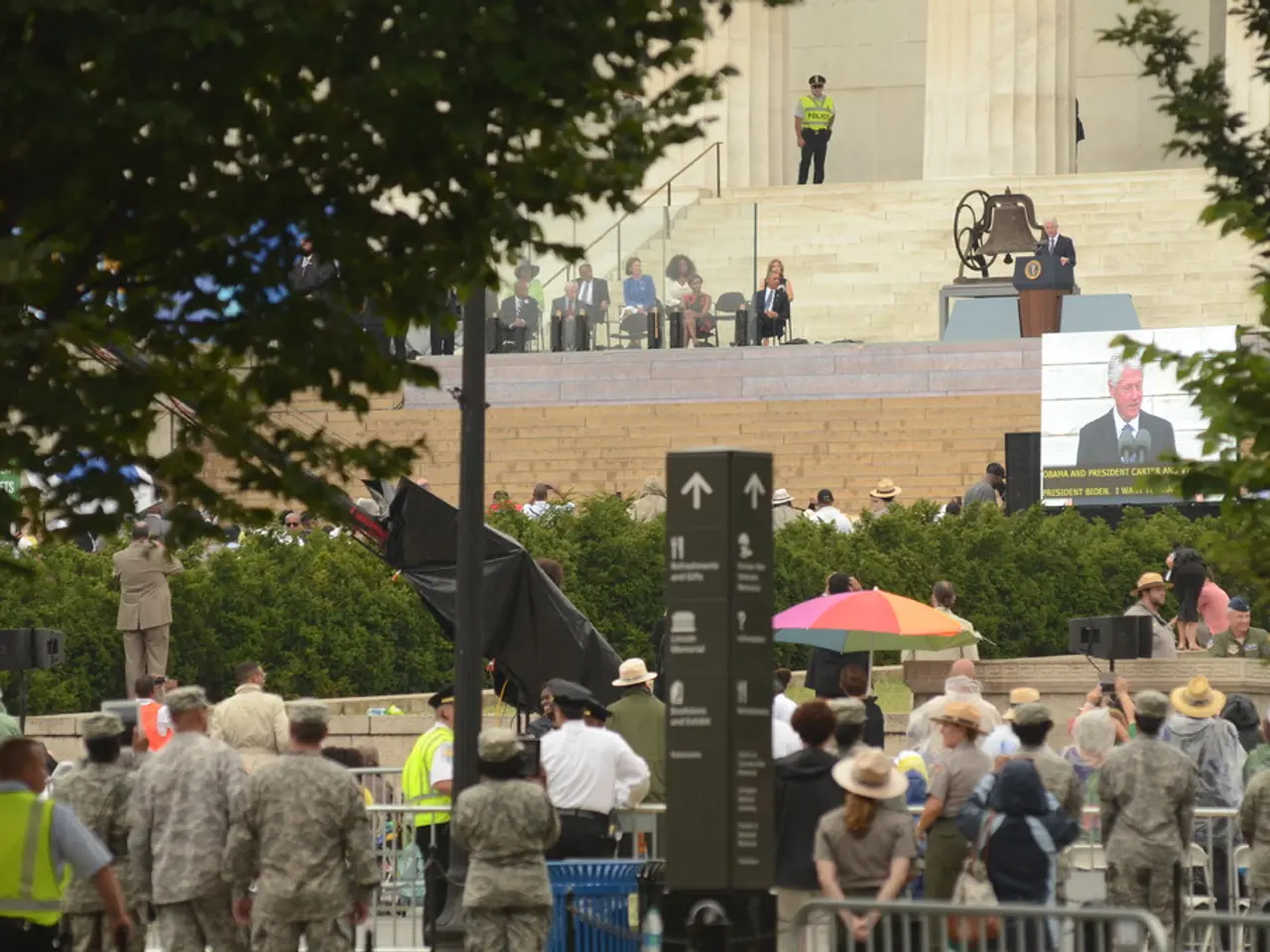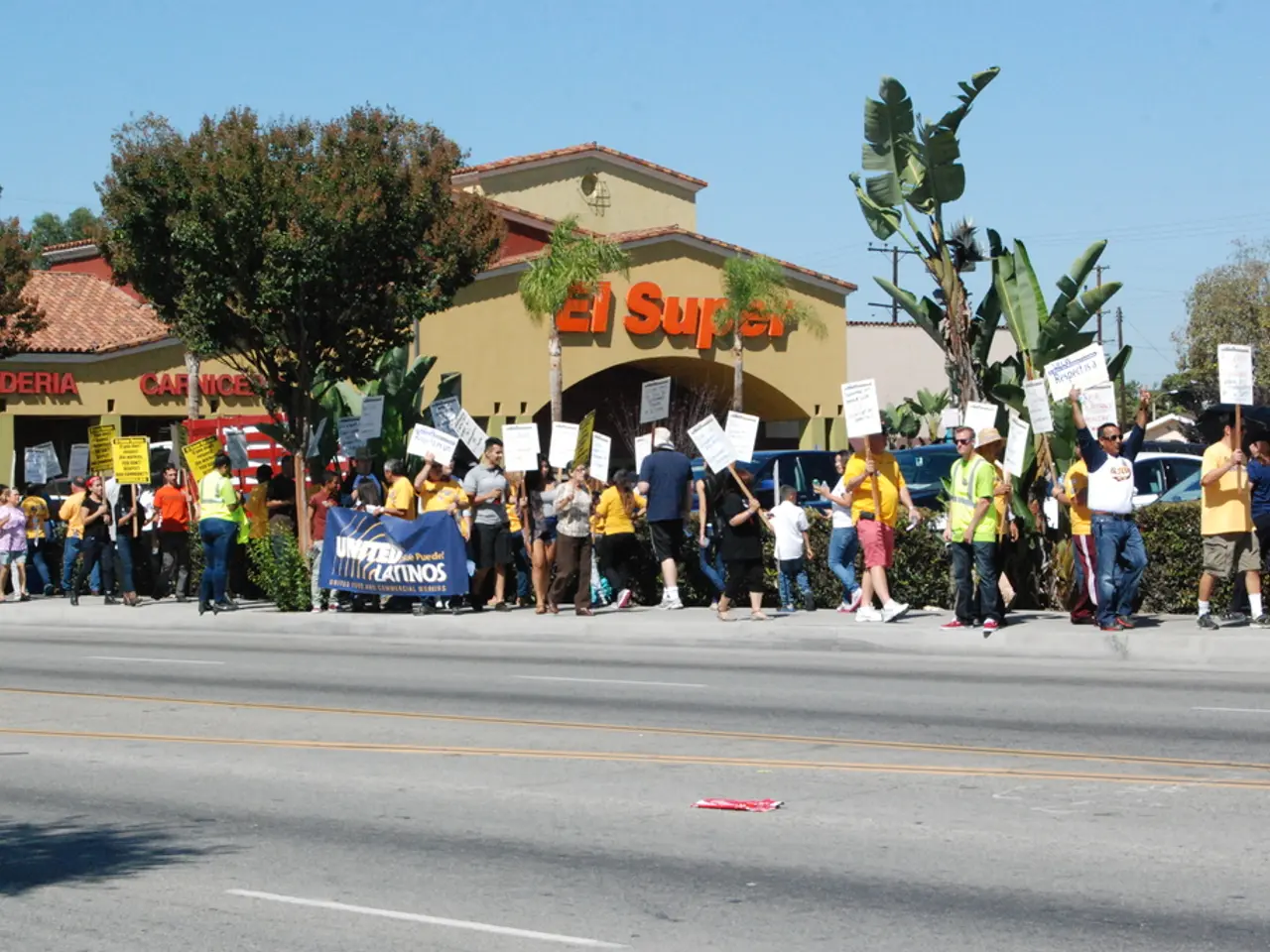Iran issue a caution against Israel's imagined plans to dismantle its nuclear projects, stating them as detached from reality.
In a defiant stance, Iran's Foreign Minister Abbas Araghchi has rejected Israel's demands to dismantle Iran's nuclear capabilities and enrichment program, asserting Iran's sovereign right to nuclear development under the Nuclear Non-Proliferation Treaty (NPT).
Speaking at an unspecified location and time following his appearance at the Muscat International Book fair on April 25, 2025, Araghchi emphasized that Iran views its nuclear program as a matter of national pride. He underscored that the technology and science behind enrichment cannot be obliterated through bombings, and Iran is capable of quickly repairing damages and making up for lost time in uranium enrichment.
Araghchi's position contrasts recent statements by Israeli Prime Minister Benjamin Netanyahu, who demanded the complete dismantling of Iran's nuclear infrastructure, warning that anything less would leave a dangerous loophole. Netanyahu made his remarks in occupied al-Quds (Jerusalem).
Araghchi further criticized Netanyahu's influence over U.S. foreign policy and his attempts to steer President Trump's diplomacy with Tehran. He expressed doubt about an imminent resumption of talks and maintained that diplomacy remains possible but only under conditions mutually respectful of Iran’s security and rights.
Araghchi also signaled that Iran is still evaluating whether to remain in the NPT but will act according to the country's interests and has not ruled out withdrawing if it contradicts Iran’s goals as shaped by the new legislative environment post-war.
Meanwhile, many Iranians no longer believe the 2015 nuclear deal (JCPOA) is sufficient, and instead seek tangible dividends for Iran's national interests. This sentiment was not lost on Araghchi, who emphasized that Iran needs assurances that it will not be targeted militarily during negotiations before reengaging with the US and Israeli demands.
Araghchi's statements come after Netanyahu firmly rejected any deal that would allow Tehran to continue enriching uranium and insisted that any agreement must also address Iran's ballistic missile capabilities. However, Araghchi's latest statements have not received a public response from Israel.
Netanyahu's remarks contrast recent statements by U.S. officials suggesting that Washington would tolerate Iran's uranium enrichment for peaceful purposes. Araghchi's statements also contrast Netanyahu's insistence that any agreement must address Iran's ballistic missile capabilities.
In a strong rebuttal, Araghchi dismissed Netanyahu's threats as "detached from reality." He declared that there is no military option or solution, and any aggression against Iran would be met with swift retaliation. Araghchi emphasized Iran's confidence in its capabilities to thwart external attempts to sabotage its foreign policy.
The recent military strikes have not deterred Iran’s nuclear ambitions but rather reinforced its resolve to continue uranium enrichment and rebuild its nuclear infrastructure swiftly. As the standoff between Iran and the international community continues, the future of nuclear negotiations remains uncertain.
- As the standoff between Iran and the international community continues, the future of nuclear negotiations remains uncertain, serving as a significant point of interest in the realm of general-news and politics.
- In a defiant stance, Iran's Foreign Minister Abbas Araghchi has rejected Israel's demands for Iran to dismantle its nuclear capabilities and enrichment program, highlighting the importance of Iran's sovereign right to nuclear development under the Nuclear Non-Proliferation Treaty (NPT), a topic of discussion in the history and culture domains.
- Speaking at an event, Araghchi underscored the permanence of Iran's nuclear program as a matter of national pride, linking it to the country's science and technology advancements, an aspect that intersects with entertainment and education through its travel and tourism appeal.
- Araghchi further emphasized Iran's resilience in the face of external threats, expressing his doubts about the influence of Israeli Prime Minister Benjamin Netanyahu over US foreign policy, creating a dynamic of tension in diplomatic relations and international politics.





